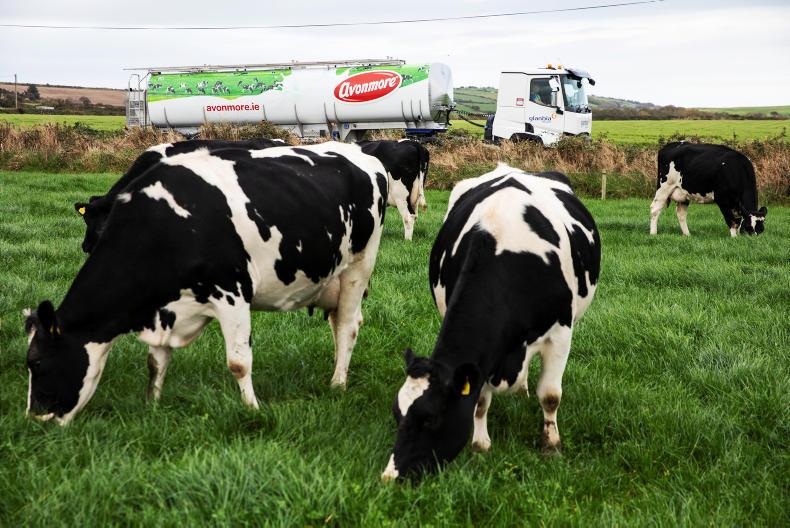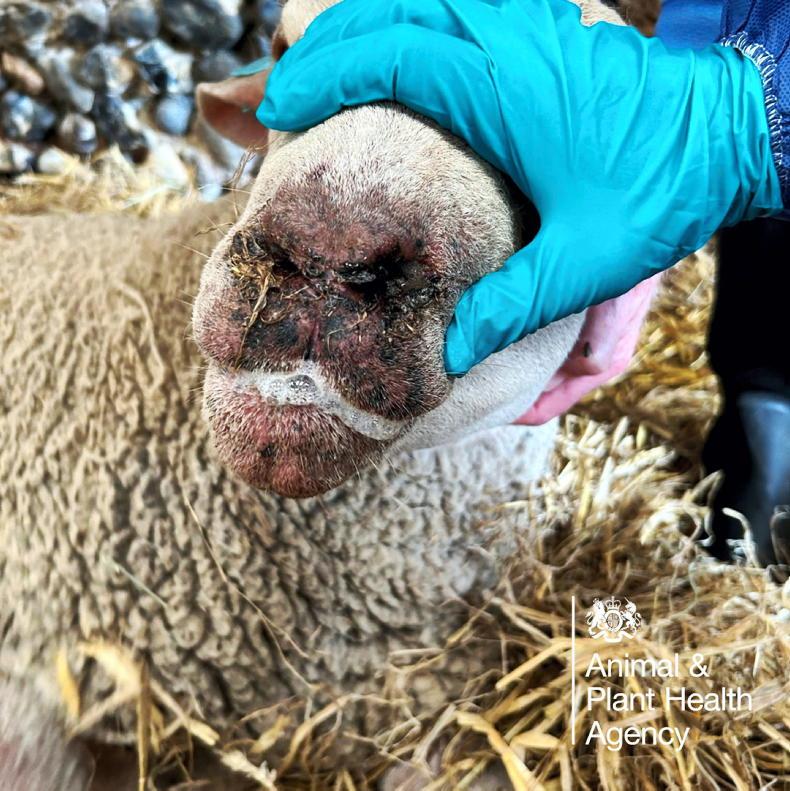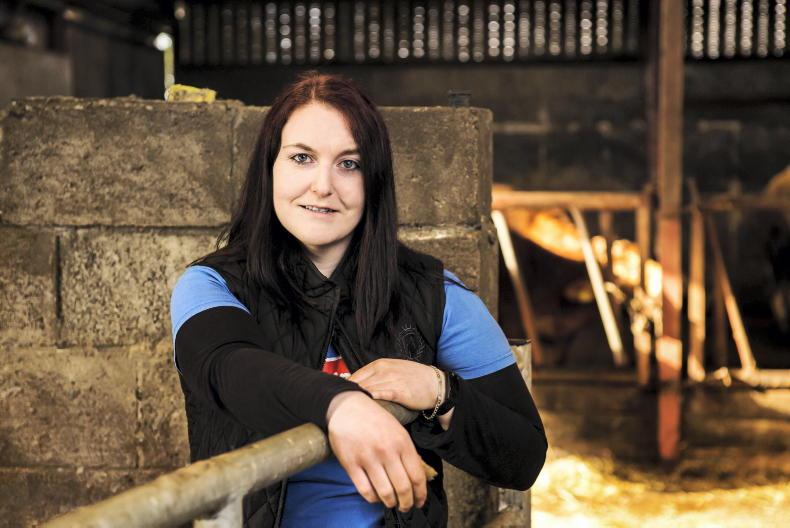Q: Is this an attempt by a factory to lock in supplies of cattle to guarantee supply?
A: A critic of the club would answer ‘yes’, Kepak will know once a calf is tagged and approximately when that animal will be slaughtered so effectively it is creating 50,000 head of supply two years in advance.
However, someone more positive about club membership would say ‘no’ and that membership adds a premium, because there is an opportunity for Kepak to market the product differently at a higher value.
Q: Will the farmer see more of that potential extra value?
A: Yes and no. Yes the club offers a premium that farmers know about going in. These premiums will be reviewed every two years. Kepak have said the fact that they will know where the animals have been and what they have been fed – ‘the closed loop’ they can attain a premium on this meat.
There is no guarantee or suggestion that there will be visibility or sharing of a transparent higher market premium. The farmer accepts this when signing up and knows what premium he/she is getting at the start. The actual market premium is commercially sensitive as farmers haven’t been told where the meat will be sold or at what price or premium.
Q: Why is a milk processing company involved in the club?
A: Glanbia milk suppliers generate the calves and Glanbia Agribusiness will provide the inputs required.
Q: What benefits does this Glanbia Kepak club offer its members?
A: A guaranteed market for club-produced beef. An output price dependent on the ‘quoted’ base price published weekly with a premium and other benefits such as technical support.
Q: Why not use the average price from the actual Department price tables published each week in the Irish Farmers Journal?
A: These actual prices published include breed premiums, VAT, and ‘In spec’ bonuses etc.
Q: The club price is largely based on ‘quoted’ prices but are these ‘quoted’ prices not lower than what is actually being paid?
A: Yes and no. Depends on supply and demand. No other good clean measure available. Some people would suggest that the price could be manipulated by a factory to generate a lower average price in prices quoted.
The lack of transparency around prices paid to farmers for finished animals has always been a point of contention and this scheme won’t really help this.
Q: Will Glanbia Kepak decide the price paid for the dairy calf by the beef finisher?
A: No, on farmer-to-farmer calf sales the market decides.
Q: Will Glanbia and Kepak decide the price of beef?
A: Yes and no. Yes in the fact that Kepak will be quoting a base price each week as will the rest of the factories and offering premiums based on certain conditions.
No in that to a large extent the market will decide and the grid will grade the carcase to set the value. Kepak/Glanbia will pay a club bonus, the usual breed bonus, the usual QA bonus and a seasonality bonus in April, May and June on top of the grid price.
Q: Do club members have to buy all their inputs from Glanbia?
A: Yes, in the case of the relevant inputs consumed by all animals on the farm, not just the club animals – animal feed, fertiliser and animal health products.
Q: Can a suckler farmer join this club? Will they have to buy all their feed for their sucklers from Glanbia?
A: Yes, suckler farmers can join the club provided they take a minimum of 25 dairy calves from a club farmer and rear them with their own stock under the club protocols.
This means they will be required to purchase all inputs from Glanbia which is required in order to protect the “closed loop”.
Q: Do farmers have to sign a contract?
A: Yes. Members will have contractual obligations.
Q: Is it all spring born calves?
A: No, both spring and autumn calving herds can apply so beef is available all year round.
Q: Why does the farmer have to purchase inputs from Glanbia Ireland?
A: The club premium being paid to club members is guaranteed based on the meat customer’s requirement for a ‘closed loop’ component in their beef supply chain and digitised entry and recording of inputs on the farm
Q: Can members of purchasing groups participate and how will their inputs be priced?
A: Yes they can participate but they must source their farm inputs from Glanbia. Their inputs will be priced the same as other club members.
Q: Will there be special feed lines for stock in this club?
A: Yes as developed by the club technical team.
Glanbia have said some feed additives stipulated by Glanbia may increase the cost of the ration by €4-€8/tonne. Standard beef rations will make up the majority of feed purchased by farmers.
Q: Can home grown and mixed feeds be used or must the farmer source their feeds from Glanbia?
A: Yes. Where home-grown feeds are used for finishing, any dietary formulations and/or balancing ingredients will be approved and supplied by Glanbia Ireland.
Q: Can by-products be used by club members?
A: Only feed materials approved in advance by the club technical team can be used.
Q: Are bulls eligible? If no, why not?
A: No - only steers and heifers. Kepak’s end customer does not want bull beef.
Q: Can I buy 25 calves from Glanbia farmers at the mart and join this club?
A: No. Mart purchased calves are not allowed. Farmers can only purchase animals from other club members directly.
Q: Surely a lot of dairy-bred heifers will be too light for the 280kg carcase threshold?
A: Yes using current breeding strategies some heifers won’t make the grade.
The weight range for carcasses eligible for the club premium is 280-360kg.
It will be hard to see a large proportion of traditional bred heifers make this weight while continental heifers may have a better chance.
Q: How many animal movements are allowed?
A: Club animals must be finished on the farm of birth or after one movement to a beef finishing farm.
Q: Can progeny of stock bulls enter the club?
A: Yes. However, any stock bulls used in the herd of origin must be pedigree registered and genotyped.
Q: Are there specific breeding requirements?
A: Yes. Participants will be required to select bulls with a specified minimum ICBF Dairy Beef Index for their 2019.
Q: Why are Jersey calves specifically excluded from the club?
A: Jersey bred calves don’t have the beef characteristics required to meet the club’s objectives.
More analysis and answers will be published this week online and in print.
Read more
Contractors offering pay increases to source drivers
Glanbia and Kepak to contract-kill 50,000 cattle
Q: Is this an attempt by a factory to lock in supplies of cattle to guarantee supply?
A: A critic of the club would answer ‘yes’, Kepak will know once a calf is tagged and approximately when that animal will be slaughtered so effectively it is creating 50,000 head of supply two years in advance.
However, someone more positive about club membership would say ‘no’ and that membership adds a premium, because there is an opportunity for Kepak to market the product differently at a higher value.
Q: Will the farmer see more of that potential extra value?
A: Yes and no. Yes the club offers a premium that farmers know about going in. These premiums will be reviewed every two years. Kepak have said the fact that they will know where the animals have been and what they have been fed – ‘the closed loop’ they can attain a premium on this meat.
There is no guarantee or suggestion that there will be visibility or sharing of a transparent higher market premium. The farmer accepts this when signing up and knows what premium he/she is getting at the start. The actual market premium is commercially sensitive as farmers haven’t been told where the meat will be sold or at what price or premium.
Q: Why is a milk processing company involved in the club?
A: Glanbia milk suppliers generate the calves and Glanbia Agribusiness will provide the inputs required.
Q: What benefits does this Glanbia Kepak club offer its members?
A: A guaranteed market for club-produced beef. An output price dependent on the ‘quoted’ base price published weekly with a premium and other benefits such as technical support.
Q: Why not use the average price from the actual Department price tables published each week in the Irish Farmers Journal?
A: These actual prices published include breed premiums, VAT, and ‘In spec’ bonuses etc.
Q: The club price is largely based on ‘quoted’ prices but are these ‘quoted’ prices not lower than what is actually being paid?
A: Yes and no. Depends on supply and demand. No other good clean measure available. Some people would suggest that the price could be manipulated by a factory to generate a lower average price in prices quoted.
The lack of transparency around prices paid to farmers for finished animals has always been a point of contention and this scheme won’t really help this.
Q: Will Glanbia Kepak decide the price paid for the dairy calf by the beef finisher?
A: No, on farmer-to-farmer calf sales the market decides.
Q: Will Glanbia and Kepak decide the price of beef?
A: Yes and no. Yes in the fact that Kepak will be quoting a base price each week as will the rest of the factories and offering premiums based on certain conditions.
No in that to a large extent the market will decide and the grid will grade the carcase to set the value. Kepak/Glanbia will pay a club bonus, the usual breed bonus, the usual QA bonus and a seasonality bonus in April, May and June on top of the grid price.
Q: Do club members have to buy all their inputs from Glanbia?
A: Yes, in the case of the relevant inputs consumed by all animals on the farm, not just the club animals – animal feed, fertiliser and animal health products.
Q: Can a suckler farmer join this club? Will they have to buy all their feed for their sucklers from Glanbia?
A: Yes, suckler farmers can join the club provided they take a minimum of 25 dairy calves from a club farmer and rear them with their own stock under the club protocols.
This means they will be required to purchase all inputs from Glanbia which is required in order to protect the “closed loop”.
Q: Do farmers have to sign a contract?
A: Yes. Members will have contractual obligations.
Q: Is it all spring born calves?
A: No, both spring and autumn calving herds can apply so beef is available all year round.
Q: Why does the farmer have to purchase inputs from Glanbia Ireland?
A: The club premium being paid to club members is guaranteed based on the meat customer’s requirement for a ‘closed loop’ component in their beef supply chain and digitised entry and recording of inputs on the farm
Q: Can members of purchasing groups participate and how will their inputs be priced?
A: Yes they can participate but they must source their farm inputs from Glanbia. Their inputs will be priced the same as other club members.
Q: Will there be special feed lines for stock in this club?
A: Yes as developed by the club technical team.
Glanbia have said some feed additives stipulated by Glanbia may increase the cost of the ration by €4-€8/tonne. Standard beef rations will make up the majority of feed purchased by farmers.
Q: Can home grown and mixed feeds be used or must the farmer source their feeds from Glanbia?
A: Yes. Where home-grown feeds are used for finishing, any dietary formulations and/or balancing ingredients will be approved and supplied by Glanbia Ireland.
Q: Can by-products be used by club members?
A: Only feed materials approved in advance by the club technical team can be used.
Q: Are bulls eligible? If no, why not?
A: No - only steers and heifers. Kepak’s end customer does not want bull beef.
Q: Can I buy 25 calves from Glanbia farmers at the mart and join this club?
A: No. Mart purchased calves are not allowed. Farmers can only purchase animals from other club members directly.
Q: Surely a lot of dairy-bred heifers will be too light for the 280kg carcase threshold?
A: Yes using current breeding strategies some heifers won’t make the grade.
The weight range for carcasses eligible for the club premium is 280-360kg.
It will be hard to see a large proportion of traditional bred heifers make this weight while continental heifers may have a better chance.
Q: How many animal movements are allowed?
A: Club animals must be finished on the farm of birth or after one movement to a beef finishing farm.
Q: Can progeny of stock bulls enter the club?
A: Yes. However, any stock bulls used in the herd of origin must be pedigree registered and genotyped.
Q: Are there specific breeding requirements?
A: Yes. Participants will be required to select bulls with a specified minimum ICBF Dairy Beef Index for their 2019.
Q: Why are Jersey calves specifically excluded from the club?
A: Jersey bred calves don’t have the beef characteristics required to meet the club’s objectives.
More analysis and answers will be published this week online and in print.
Read more
Contractors offering pay increases to source drivers
Glanbia and Kepak to contract-kill 50,000 cattle









SHARING OPTIONS